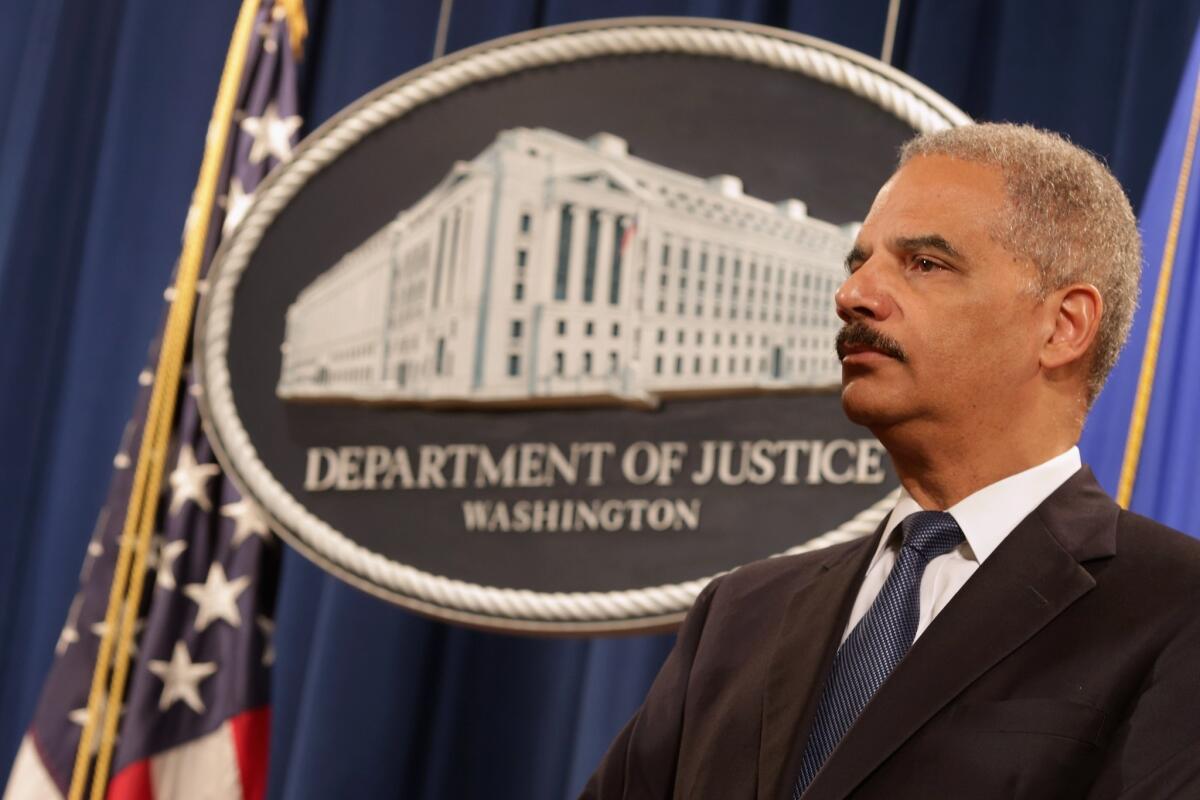Atty. Gen. Holder tightens limits on U.S. subpoenas of journalists

- Share via
Reporting from Washington — The Justice Department on Wednesday announced a tightening of its rules for when federal prosecutors can subpoena journalists or their records.
The revisions reflect a pronounced shift by Atty. Gen. Eric H. Holder Jr. away from an aggressive policy toward reporters, especially those involved in divulging classified national security information.
This week the Justice Department announced it would not subpoena New York Times reporter James Risen in the trial of former CIA officer Jeffrey Sterling for allegedly revealing intelligence secrets about Iran to Risen, ending a six-year legal battle.
Federal prosecutors in Virginia had said that Risen’s testimony was critical to their case, but Holder stepped in last year and said that they could ask only for very basic information that was of little value to the case.
The move appeared to reflect tension between the U.S. attorney’s office in Alexandria and Holder’s advisors, particularly Director of Public Affairs Brian Fallon, who has championed the new approach.
The changes announced by Holder on Wednesday include a small but significant alteration of one phrase. New guidelines issued last February protected reporters engaged in “ordinary news-gathering activities,” which appeared to be a loophole leaving open to interpretation what prosecutors considered “ordinary.”
In the new guidelines, still being finalized by the Justice Department, the word “ordinary” has been dropped so that prosecutors seeking to subpoena reporters or their records must seek a high-level review for reporters engaged in any “news-gathering” activities.
Twitter: @timphelpsLAT
More to Read
Sign up for Essential California
The most important California stories and recommendations in your inbox every morning.
You may occasionally receive promotional content from the Los Angeles Times.











